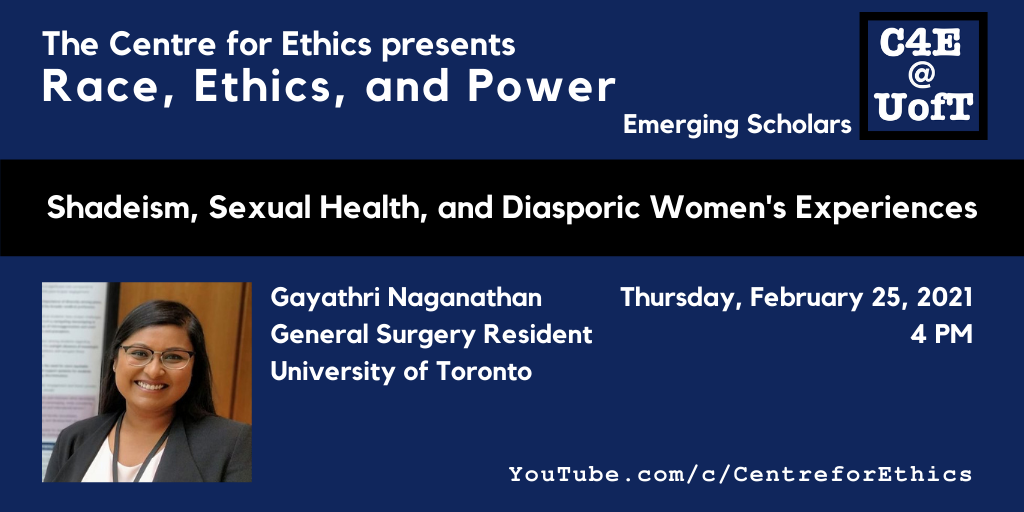
Shadeism, Sexual Health, and Diasporic Women’s Experiences
Shadeism is the process by which lighter skin is equated with perceived health and social benefits. Studies suggest racialized women have an additional burden to adhere to Eurocentric beauty standards in order to be seen as employable, attractive, and socially and culturally desirable (Charles & McLean 2017; Veenstra, 2011). However, what remains to be studied is how shadeism mediates 1) priorities (gender, self-image, lifestyle, social relationships, familial networks, employment, social mobility, class, caste) leading to lightening practices; 2) the narrative of ‘looking healthy’ to be connected to lighter skin beauty; and 3) how the ethics of researching racialized communities influences which health issues are prioritized. How racialized women treat their skin reveals much about the pressures of societal expectations (Rozen et al., 2012). Through a combination of informant interviews, focus groups with arts-based activities (photo voice, oral histories (Forbear, 2016) and one-on-one interviews, this qualitative pilot project led by ASAAP first aims to examine how racialized cis and transwomen ages 16-35 from the Caribbean, South Asian, Middle Eastern and North African (MENA) regions are affected by shadeism and how it impacts their sexual health. The approach will be from an anti-oppressive, Intersectional Feminist analysis, and in this talk I will call attention to the complex ways in which shadeism, gender, sex, caste, race, class, location, religion, and age inequities create societal pressure for cis and transwomen.
► please register here
This is an online event. It will be live streamed on the Centre for Ethics YouTube Channel on Thursday, February 25. Channel subscribers will receive a notification at the start of the live stream. (For other events in the series, and to subscribe, visit YouTube.com/c/CentreforEthics.)
 Gayathri Naganathan
Gayathri Naganathan
General Surgery Resident
University of Toronto
Dr. Naganathan is a General Surgery Resident Physician at the University of Toronto and an alumna of McMaster University Medical School. She also holds a Master of Science in Health Services Research from the Institute for Health Policy, Management, and Evaluation at the University of Toronto. Her body of work includes research examining the experiences of immigrants, refugees, homeless, and racialized communities in the areas of primary care, mental health, migration, and aging. Her current interests include health policy, health equity, global health, and the application of qualitative methodology within health systems and surgical research.
Thu, Feb 25, 2021
04:00 PM - 05:00 PM
Centre for Ethics, University of Toronto
200 Larkin
